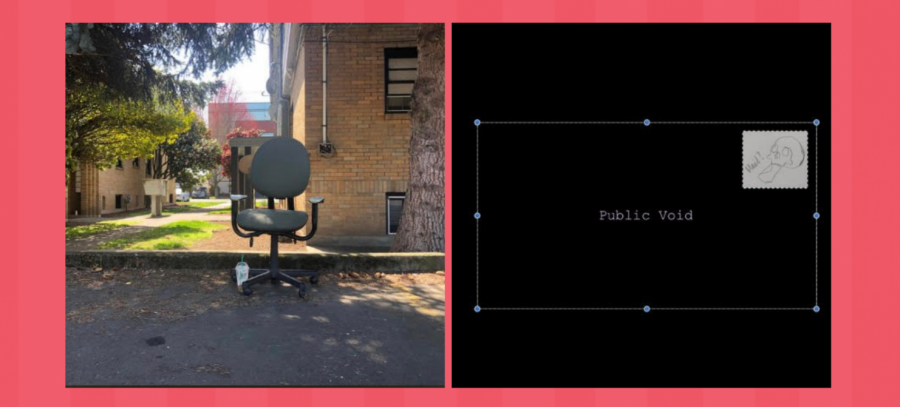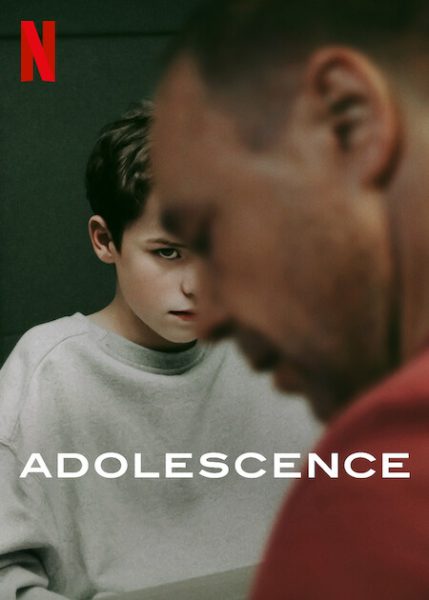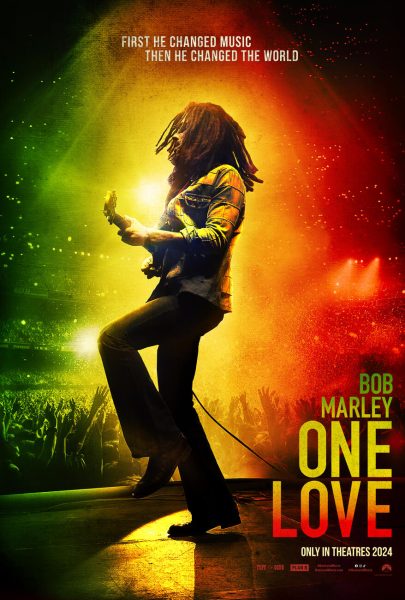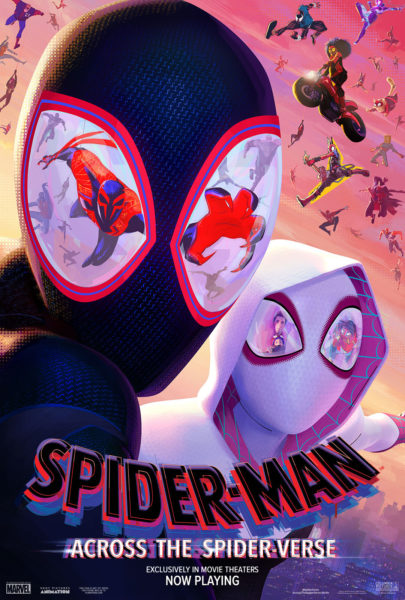Penelope Scott: Capturing the Anger of a Generation
Left, the album cover for Scott’s first album, “The Junkyard 2,” and right is the cover for her second album “Public Void.”
Penelope Scott’s discography is short, though impressive. Only 20 years old, Scott rose to fame on the popular social media app TikTok, posting short clips of her original songs, and her first two albums—both released this year—generated millions of streams across platforms.
Scott’s music has been described as “techno,” “folk punk” and “punk ragtime.” While she eludes genre, most can agree she falls into at least one category: Penelope Scott is angry.
In “Sweet Hibiscus Tea,” the hit from her first album, The Junkyard 2, Scott expresses the frustration that accompanies youth and all its confusion: “I’m not your protagonist / I’m not even my own / I don’t know anything / I don’t even know what I don’t know.” Both choruses culminate in a heart-wrenching lyric, the piano dropping out: “I don’t know what I need.”
And in “Mommy Fwiend,” Scott expresses anger with the way women are treated as emotional dumpsters: “I’m not your therapist / I’m not trained for this / And I don’t wanna be forced to listen.” She argues that “This isn’t feminism / This is straight up normal etiquette.”
Her anger carries over to “Lavender,” the third song on The Junkyard 2, where Scott addresses confining gender roles in the context of a romantic relationship: “Am I really gonna be just someone’s girl?”
In Public Void, her second and most recent album, Scott trades monaural sound and echoing piano for stereophonic audio and techno beats but retains her first record’s angry attitude.
“Lotta True Crime,” the second song on Public Void, responds to our culture’s fascination with true-crime shows, which, Scott implies, can put murderers and serial killers on pedestals and dismisses their (often female) victims as foolish and weak: “She could’ve killed you / She had every right / You just caught her off guard tonight.”
And in her song “American Healthcare,” Scott plays the role of a medical doctor to express outrage with our profit-focused healthcare system, singing “How could they ever feel okay / When things are more and more this way / Sometimes it’s like they’d rather die!”
In “Rät,” the last song on Public Void, she again articulates her anger with our capitalist society: “But I don’t want to see the stars if they’re just one more piece of land / For us to colonize, for us to turn to sand.”
Her most recent single, Born2Run, directly addresses those in power who choose to criticize Generation Z: “Life and liberty, sometimes property, the right to try to feel good / Her heart is pure the math checks out so what’s the move / And how could you do this when I learned my rights from you?”
Scott’s music is made by a Gen Z-er, for Gen Z-ers. When America’s finest young adults blast it from their bedrooms, relishing in their teenage angst, it might get a shake of the head and a Is this what you kids listen to nowadays? It’s littered with dark humor and bursting with rage, but that’s what Generation Z is known for: the dark humor that recognizes the inefficiencies of our societies, and the rage to fix it.
The teenage girls that make up the majority of Scott’s audience aren’t looking for a way to express their boy-craziness or the excitement of youth. They’re busy thinking about climate change, healthcare systems ravaged by a pandemic and their predetermined place in society. America’s teenage girls are angry.
And Scott understands that.







Lux • Jan 12, 2022 at 1:55 pm
I’m a nonbinary lesbian with a lot of rage towards my manipulative father, Rat really helps me vent all my stress about that, and Scott’s other songs also help me with other things. I’ve shared some of her music with my mom (luckily she divorced my father a few years ago and is now married to an awesome woman), I was a bit worried she wouldn’t like some of the songs that say d!ck but she likes the music too (probably not as much as me though).
kry • Nov 18, 2021 at 9:10 pm
Hey, saw this article and decided to comment on it. Scott is what I listen to when I’m looking for intelligent conversation and am unfortunately finding none. I like that she presents different opinions, insecurities, and views without being the perfect, calm object that nobody can be. Honestly her songs are so quotable at times, and it’s really just amazing hearing all of my thoughts put into words.
“I know if I were in congress and someone shot up a school, I’d fucking cry about that too”
-13 y/o GenZ girl
magicJaz • Sep 5, 2021 at 1:48 pm
Im an Israeli trans guy and her angry songs made me feel sane when I served in the army.
She helped me remember that I am not alone in this horrible feeling that something is very clearly wrong.
Also I just learned she’s 20 from this article, and she speaks about suicide a lot, im a bit concerned as a person who struggles with it as well, it makes listening to her bitter sweet because I love her words, I want to continue to draw power from them and use them to soften the falls of when my mental illness gets dangerous (only for me), but when she screams from the top of her lungs that ahe wants to die so many times it feeds into something im trying to fight.
Im just saying it hits a bit to close is all, but its ok im a big boy and i really hope she gets help and manages to see shes doing something in people’s hearts.
Olive Monroe • May 20, 2021 at 9:18 am
I absolutely love Scotts songs and lyrics. They help me get my rage out while blaring her music outside in the woods behind my house at 3 AM. I can finally scream about injustices and it makes me feel like I CAN change things. Thats an amazing feeling and it takes a lot to bring that feeling out in me.
– A random 14 year old that loves hating the world and everyone in it
Melanie stan • May 10, 2021 at 8:38 am
honestly gen z has potential to change the world but they wont use it the past generations have been listening to what their parents say without looking at everying from an unbiased point of view thats what gen z did and then they identified the injustice and spoke out about it but yet we sit down and expect gen alpha to take actual action no we need to start now by the time gen alpha is 15 we’ll be our parents’ age we need to speak out and take action these kids cant change the world without an example and clearly millenials arent a good on my parents are born in the 70s and everyone knows how their point of veiw of everything is so i have to be an example for my brother and be someone who can teach him things about politics show him unjustice my brother is 7 years old and he has more empathy and logic than the past generations will ever have by the time they are dead i believe as a person apart of generation z that instead of just calling it out i will take action and i will teach the generation after me the injustice of society because we and the youngr kids are the future everyone before us is going to be dead sooner or later so in order to change the world we need to be able to teach these kids the right thing
Taro • Apr 19, 2021 at 1:47 pm
I understand how she wanted to capture how most of human kid are jerks who ruin the world or something.
And I get her anger but I think she should calm down. But it is good she expresses her feelings and tells people what she thinks.
I also just wish she had less swears so I could listen to her more of her songs
– Some 10 year old girl
sunny • Jan 27, 2022 at 1:25 am
her music isnt just about “human kids ar jerks who ruin the world or something” it has a depper meaning and its not just children but adults who are not doing their job right to protect and be there for their child and also politics are a big problem they just focus on the money they dont care that much about their citisins lol and also no one can “understand” each others feelings because no one can feel the same thing you havent gone through whats shes been through so you cant understand her anger and ofcourse you have your own yk?<3 but she shouldnt just "calm down"because the stuff she talking about in her songs are EXTREAMLY important you may not realize it now but the stuff she sings about is whats tearing people and the world apart i hope one day someone can speak up ab all the bs that the government and shit is doing and im not trying to be agressive this is just my opinion sorry if it came off as me being disrespectful or anyting:) (also you might be able to find the filtered versions of her songs on youtube<3)
-a cranky prehistoric 13 year old
sage • May 10, 2022 at 11:58 pm
The fact that she expresses this anger for everything in these songs publicly proves that she is one of the most damn right boldest gen z there is, the fact that she knows how to express this anger without just putting towards one specific person is true maturity compared to all these other top-notch singers who think they’re all that, you say that you think she should calm down will put her back in the dark with her opinions stored in a closet, but you see she has been threw more than any of us may have every been threw so she has very fuckng right to state her opinion in any way she finds possible.
-A cool person
Nannerpus • Mar 13, 2021 at 10:56 am
I was pretty surprised how much I like her music for being a Gen Z artist but honestly it’s pretty good. Her songs are reminiscent of artists like Julien Baker and Andrew Jackson Jihad.
Lemon • Mar 11, 2021 at 5:47 pm
I am so happy someone made this. My friend and I are doing a school project for women in music and I feel like Scott is just so controversial and bold that I had to do her for my project. I can really relate to her songs, I like coding and electronic restoration etc. and I just want to change things. This system is just so old. Like, I get old man vibes when I think of capitalism. Things need to CHANGE. I really don’t wanna sit around and watch people fix things, I want to go down in history as someone who made things so much more fair and good for future generations. I want to make an impact. Now. But I can’t do much as an introverted 12 year old who’s barely passing in school. I just want to do something good with my life.
e-maggie • Mar 2, 2021 at 6:43 am
I’m so glad that finally, some kind of platform is talking about Penelope Scott. Her music and what she stands for is everything that we need to focus on and stand up for. (and yes im gen-z.) it’s not even about saying “Oh, i’m woke” its about the change that is so obviously needed, that its hard to ignore, so why should we ignore it? apparently we are the more sensitive generation? But it’s not even about being sensitive towards slurs and subjects, (me being bisexual, heteromantic), It’s about knowing that those slurs are wrong and very degrading. congratulations millennials and baby boomers! You raised gen-z to know write from wrong! So don’t get mad when we tell YOU what’s right from wrong. I refuse to let this planet go to **** before MY children are born.
-some annoying Gen-z girl
Kiyo . • Feb 11, 2021 at 9:29 am
Finally someone expressing how bad some of the older gens are..because they are. I’m a Transgender male who lives in a conservative area, seeing how older gens react to some communities is immature. Generation Z is said to be the most “sensitive” and the one generation that gets offended over slurs , etc. We aren’t sensitive, we just know what’s wrong and what isn’t. It’s embarrassing that the YOUNGEST generation has to do the things older gens didn’t do. It’s sad how I related to the song ; I wanted to learn code and I wanted to go to mars and work for NASA/Space X. Yet, In reality they’d probably just destroy the planet.
We are change.
UnknownGirly • Jan 25, 2021 at 3:45 pm
Finally, someone who talks about this. I might be young, female, and just like any other basic girl, you would see. But at least one site explains that Gen-Z is raged because of this. Lord have mercy, it’s right. We aren’t here to squeal about stupid boy bands and “Omggg Chad is sooo hot” We’re here to talk about things that are important. We might be a young generation, but if the older gens aren’t doing anything. Then we will. (Also Penelope Scott is amazing pls gorly- ??️)